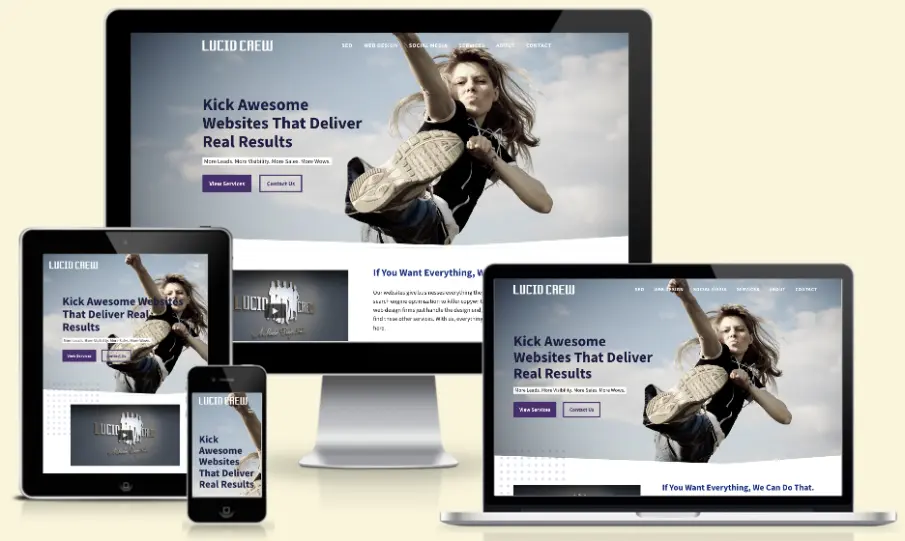Simple Strategies to Build Website Authority
Website authority is one of the vital parts of business SEO metrics.
Regardless of the size of your company, to compete effectively in today's crowded marketplace, you need to have your website authority scores up.
And the thing with website authority is that it is not a 'direct' metric like keyword ranking or engagement.
What we mean is that to see increases in authority, you need to tweak all parts of your SEO. Let's take a look at how you can do that easily.
Here are the 10 Smart Ways to Increase Your Website’s Authority
1. Optimize Your Website
Since website authority is connected with your SEO strength, it makes sense to start there. Ensure that you have updated your keyword list and added newer and better options to it.
Your website can also do with a meta tag optimization revamp which can have a huge effect on your authority scores.
Schema markup also needs to be tidied up and any errors on it fixed so you can feature on the rich snippets section.
Don't forget to add proper alt text for images and compress them without losing quality. Cleaning up your URL structure is also something that you should think about.
An uncluttered URL space does good for search engine crawlers and people! Conduct regular SEO audits to ensure that your website is in top shape.
2. Streamline Your Website
With the focus on usability, page loading speed has become one of the most important ranking signals as far as SEO is concerned.
Ensure that you do everything to ensure that your website loads as quickly as possible. This could mean tinkering with your code so make sure you know you won't break your website before you get into it!
It's also a great idea to reduce visual clutter on your website. For most business websites, keeping the theme minimalist is a great way to help people gather the required information from it.
Another important thing to keep in mind is to maintain the brand color palette throughout the website. Invest in a more secure experience by opting for the HTTPS protocol.
More security also means better rankings.
3. Publish High-Quality Content
Content has been and will be one of the most important parts of SEO. Quality content can give you a lot of advantages against your competitors.
When creating content ensure that you have research that your team has gathered and not from a third-party source.
This will make your content unique and more websites will link to it. It is also vital to not ‘post for posting’s sake’ when it comes to content.
Doing this will only hurt your brand in the long run. Creating planned, in-depth guides is a surefire way to attract more positive attention to your website.
Creating pillar pages for important topics on your website can also be beneficial. These pillar pages need to be updated on a regular basis to ensure that content is relevant and not outdated.
4. Build a Strong Backlink Profile
One of the biggest factors that push the needle for the authority of a website is backlinks. A strong backlink profile can catapult your company ahead of your most well-entrenched competitors.
Links from high-authority brands in your niche or related domains can give your website a huge boost in organic traffic.
Work on creating collaborations with other members of your community. Leverage the power of social media influencers to get more traction for your website.
Contributing regularly to forums and other text-based social media platforms can be a great catalyst for your website authority.
One way to get regular backlinks to your website is to create testimonials and blogs to be posted on websites.
Lastly, don’t forget competitor backlink analysis to understand what your competitors are doing right and what you're doing wrong.
5. Include Guest Blogging Opportunities
Guest posting is a vital part of creating a platform for ideas and discussion. And the more people engage, the higher your website authority scores go!
Guest posting is a two-way street – you need to focus on giving other brands the opportunity and vice versa. Create engaging pitches for industry veterans so they engage with your website.
Getting them to create an informative blog post will have a huge positive impact on your metrics. Creating expert roundups is a great way to get more people interested in your content.
Choose a common issue that is talked about in your domain and then get the opinion of various industry experts on it.
For high-performing content pieces, can also be turned into videos or infographics to further improve reach and shareability.
6. Ensure Mobile Responsiveness
When discussing important factors for website authority, mobile responsiveness is so important that it is mandatory.
In fact, websites that are not mobile responsive have a much lower chance of even featuring on the first page, much less in the first five spots.
Ensure that your website is extensively tested for mobile-friendly design.

There are a variety of tools including Google’s Mobile Responsiveness tool that can evaluate how effective the design is on mobile phones.
Having the same framework and design for your desktop and mobile device will not be ideal.
Since the display area is a lot smaller, you need two different versions of your website for the best outcome.
Use AMP (Accelerated Mobile Pages) to drastically decrease load times on your website and provide the best experience for your users.
7. Encourage User Engagement
Most brands think that just having a comments section will improve engagement for your website. But the truth is that you need to spend time engaging with your users.
Many times, the fruitful discussions are the ones occurring in the comments section of a blog post. Remember to keep all discussions professional even when the other person is not adhering to etiquette.
Create fun polls and surveys that your community can partake in and also ensure that you reward their participation through discounts or offers.
Giving your community the chance to feature in your social feed through UGC (user-generated content) is a wonderful and productive idea.
Conducting AMA (Ask Me Anything) and Q&A sessions on platforms like Reddit can give you a lot of credibility and trust.
8. Focus On Social Media
Boasting billions of prospective leads, social media is a gold mine for businesses. But the caveat is that since it is crowded, you need to know how to best optimize it for reach.
Just posting short videos on Facebook and YouTube will only get you so far. You need to spend time researching the right subject and format to post.
Doing well on your social media handle means more people visiting your website, which equals better website authority. It pays to have separate strategies for each social media platform you use.
Also, remember to connect with other industry veterans and influencers on their social media. Through collaborations with them, you can get a good amount of organic traffic to your website or landing page.
9. Reach Out to Online Directories
A good source of link juice is getting your brand on online directories. There are several different types of directories.
While some are just like Yellow Pages, there are specific format-based ones like blog directories as well.
Ensure that you're reaching out to niche-specific directories - there is no point in spamming directories that are not relevant.
Search engines have become smarter and they will penalize websites that try to do this.
Building a solid reputation with the BBB (Better Business Bureau) and Trustpilot is a great way to build online credibility and trust.
If you're comfortable talking to people, try getting on popular podcasts that are relevant to your brand. Before you do any of this though, ensure that you have all your NAP details right.
It should be consistent across all your online profiles right down to the hyphen!
10. Leverage Tracking and Analytics
Many brands, even big ones, sometimes fail to realize the importance of regular tracking and analytics.
Having at least a monitored Google Analytics setup is mandatory when it comes to getting website authority. In addition to this, setting up a Search Console monitoring feedback loop is also essential.
Getting customer behavior information from Hotjar is a great way to understand what you're doing wrong.
Use several platforms like Ahrefs and SEMrush to draw valuable SEO-related information about your website.
Consolidating all of this into a dashboard gives you quick and easy access to all relevant information.
Key Takeaways
- Improve your SEO profile with regard to keywords, meta tags, and schema markups.
- Create quality content that is relevant to your audience and publish it on accessible platforms.
- Build high authority backlinks through guest posting and leveraging relationships.
- Streamline your website by increasing loading speed and minimizing clutter.
- Engage with your users on a regular basis on comments and social handles.
- Leverage online directories to get more social credibility for your brand.
- Audit and monitor website performance with tools.
More to Read:
Previous Posts:






